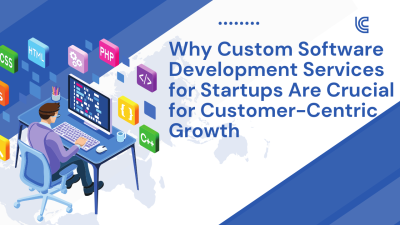When I first started my journey in the world of startups, I quickly realized one thing: business development can make or break your company. While building a great product or service is crucial, it’s the business development skills that will take your startup from an idea to a thriving company. If you’re in the trenches of a startup, you know that scaling isn’t just about coding and product design – it’s about how effectively you build relationships, open doors, and generate new opportunities.
In this blog, I’m going to share my personal experience on what makes business development skills so essential, what sets the high-growth startups apart, and the key traits you need to succeed in business development as a startup founder or team member.
Table of Contents
The Business Development Skills That Matter
When it comes to business development skills, it’s easy to focus on the shiny things, fancy pitches and flashy presentations. But from my experience, true business development skills are rooted in the following foundational elements:
- Relationship Building: In the startup world, connections are everything. I’ve learned that no matter how great my service is, I need a strong network to get my foot in the door. The best business development skills aren’t just about selling; they’re about cultivating genuine, lasting relationships with potential partners, investors, and clients.
- Listening and Understanding Needs: The ability to listen actively and understand the needs of others is one of the most underrated business development skills in my experience. I used to think I had to push my service relentlessly, but now I know it’s all about understanding the problems others face and figuring out how my service can solve them.
- Negotiation Savvy: I’ve been in countless discussions that teetered on the edge of a deal falling apart and it’s all because of a poor negotiation. The ability to meet in the middle, find win-win situations, and remain calm under pressure is essential when I’m in the startup trenches. Developing strong negotiation skills is one of the critical business development skills that sets high-growth startups apart.
- Adaptability and Agility: High-growth startups often have to pivot, and that means adapting to different business environments quickly. Whether I’m speaking to investors or potential clients, the best business development skills include being agile, adjusting my pitch or strategy on the fly based on the room and the situation.
- Persistence and Resilience: In the startup world, rejection is a given. In my experience, it’s the ability to bounce back from setbacks that makes the difference. The best business development skills are those that enable me to persist in the face of adversity, bounce back from failures, and always keep my eyes on the bigger picture.
The Importance of a Strong Network
Networking is often considered a buzzword, but in the world of startups, it’s everything. I’ve seen how the right connections at the right time can turn a startup into a high-growth company. Here’s why networking is so essential for business development skills:
- Access to Resources: When I’m building something from scratch, having access to resources like funding, mentors, and expert advice is priceless. A strong network helps open doors that would otherwise remain closed. It’s not just about who I know but also who they know.
- Partnership Opportunities: One of the most powerful ways to scale a startup is through strategic partnerships. Whether it’s partnering with other startups, businesses, or organizations, the best business development skills help me identify and foster these partnerships.
- Learning from Others: Networking also offers a wealth of knowledge. The more people I connect with, the more I can learn from their experiences, mistakes, and successes. These lessons can save my startup years of trial and error.
Selling Isn’t Just About the Service
When I was starting out, I mistakenly thought that business development was all about convincing people to buy my service. But as I’ve grown, I’ve learned that selling isn’t just about pushing my service; it’s about aligning my service with the needs of others. The best business development skills involve:
- Consultative Selling: It’s not about hard sales. It’s about asking the right questions, getting to the heart of the problem, and showing how my service can solve that issue. When I shifted my mindset to consultative selling, I saw far better results than when I was just pushing features.
- Understanding the Decision-Making Process: In high-growth startups, deals often involve multiple stakeholders. Being able to understand the decision-making process and address the pain points of each stakeholder is crucial. This is where the real business development skills come into play – understanding who’s making the decision, what they value, and how to speak their language.
- Follow-Up and Nurturing: Business development doesn’t end with a pitch. I’ve learned that nurturing relationships through follow-up emails, check-ins, and updates can turn a cold lead into a loyal customer. Developing the skill of long-term relationship building is just as important as closing the deal.
Strategic Thinking for Long-Term Growth
High-growth startups think long-term. It’s easy to get caught up in the daily grind of pushing sales, but successful business development skills involve looking ahead and preparing for the future. Here’s what I focus on:
- Scaling Partnerships: As my startup grows, I need to think about how to scale my business development efforts. This involves creating repeatable processes for securing partnerships and finding new avenues for revenue growth.
- Market Expansion: One of the most crucial business development skills I’ve developed over time is recognizing when it’s time to expand into new markets. Whether it’s a new geographical region or a new vertical, understanding when to take the leap is vital for high-growth startups.
- Leveraging Data for Strategy: The best business development teams are data-driven. By analyzing market trends, customer behaviors, and competitor moves, I can make informed decisions that guide my long-term strategy. Learning how to leverage data for business development is one of the most valuable skills I’ve gained.
The Mindset of a Business Developer
Mindset plays a huge role in business development. I’ve learned that the best business development skills aren’t just technical; they’re mental. Here’s what I keep in mind:
- Growth Mindset: A fixed mindset can limit opportunities. But with a growth mindset, I’m constantly learning, adapting, and pushing the limits. The best business developers are those who are always looking for ways to improve, find new solutions, and evolve as the company grows.
- Problem-Solving Mentality: High-growth startups face huge challenges, and my ability to think critically and come up with creative solutions is what will separate me from the competition. The best business development skills come from consistently tackling challenges head-on and turning them into opportunities.
- Risk-Taking: Risk is inherent in startups. I’ve learned that sometimes I have to take calculated risks to reap rewards. A key part of business development is knowing when to take those risks and when to play it safe.
Customer-Centric Focus
One of the most important business development skills I’ve learned is keeping the customer at the center of everything. Understanding customer pain points, needs, and desires isn’t just about service development, it’s about shaping your entire business strategy. High-growth startups understand that building strong customer relationships and continuously improving based on feedback is key to long-term success.
- Customer Engagement: For me, regularly engaging with customers not only helps build loyalty but also provides insights that shape my next move. I make sure customers feel heard and valued because I know that’s the key to lasting relationships.
- Creating Customer Advocates: I’ve found that the best business development skills allow me to turn satisfied customers into my biggest advocates, who help spread the word and drive referrals.
Leveraging Technology for Efficiency
In today’s world, tech is an essential part of business development skills. I’ve realized that the best business developers aren’t just good at making deals—they’re also skilled at using technology to improve efficiency, automate processes, and streamline workflows. Here’s how:
- CRM Tools: I make use of tools like Salesforce or HubSpot to keep track of relationships, sales pipelines, and communication. It helps me ensure that no opportunity slips through the cracks.
- Analytics and Insights: By leveraging analytics tools, I can make data-driven decisions and measure the effectiveness of my business development strategies—this helps me focus on what works and adjust where needed.
Brand Building and Positioning
When I’m in a startup, getting my brand recognized is crucial for creating growth opportunities. One of the core business development skills is knowing how to build and position the brand effectively in the market.
- Compelling Storytelling: I focus on crafting a strong brand narrative that helps potential partners, customers, and investors understand the vision behind the startup. By telling the startup’s story well, I create deeper connections with people who resonate with it.
- Differentiation: I know that in a competitive market, standing out is everything. I work on clearly communicating what makes our startup unique and why we are the right choice for our customers.
Understanding Market Trends
Being able to spot emerging trends is one of the most valuable business development skills I’ve developed. High-growth startups are always looking for ways to get ahead of the curve, so I’m constantly analyzing market data, competitor activities, and industry trends to position my startup for success.
- Proactive Strategy: Instead of waiting for trends to hit, I make sure I anticipate them. By understanding where the market is going, I can make smarter decisions and capitalize on opportunities before they become mainstream.
- Continuous Learning: Staying up-to-date on industry changes is vital. I invest in my team’s professional development to ensure we can adjust our strategies and remain competitive.
Emotional Intelligence in Business Development
Emotional intelligence (EQ) is often overlooked, but it’s one of the most important business development skills that can separate a high-growth startup from others. In business development, I’ve learned that the ability to read people, manage relationships, and navigate difficult conversations is essential for long-term success.
- Building Trust: I’ve found that with strong EQ, I can build stronger relationships with clients, investors, and partners by demonstrating empathy and understanding. This allows me to earn trust and create solid, long-lasting connections.
- Conflict Resolution: In any business, conflicts arise. I use my emotional intelligence to manage disputes and ensure that they lead to mutually beneficial outcomes, without damaging relationships.
Strategic Thinking in Partnerships
I’ve found that one of the most powerful business development skills is the ability to form strategic partnerships that create long-term value. It’s not just about making deals for the sake of it – it’s about finding partners who complement my startup’s strengths and help us reach new heights.
- Identifying Mutually Beneficial Partnerships: I always look for partners who can bring something unique to the table, whether it’s access to new markets, resources, or expertise. I ensure that these partnerships are based on clear, shared goals.
- Maintaining Partnerships: I understand that cultivating long-lasting relationships requires constant attention. I make an effort to keep partners engaged, ensuring that the relationship remains valuable for both parties over time.
Adaptability to Changing Market Conditions
I’ve seen firsthand how quickly things can change in the startup world. That’s why one of the most crucial business development skills is adaptability. High-growth startups are always adjusting to new market conditions, and I’ve learned to do the same.
- Pivoting When Needed: When market demands shift, I’m quick to pivot and adapt my strategy to meet new challenges. Whether it’s changing my approach or launching new services, I embrace flexibility.
- Anticipating Market Disruptions: I make it a priority to stay ahead of trends and potential disruptions so that I can shift my business development strategies before they even affect my startup.
Understanding the Financial Landscape
In my journey as a founder, I’ve learned that understanding the financial aspects of business development skills is crucial. It’s not enough to simply know how to sell or pitch; I also need to have a strong grasp on financial models, pricing strategies, and funding options.
- Pricing Strategy: I’ve realized that the right pricing strategy can make a huge difference. I work to understand the economics behind my service and tailor my pricing to match customer expectations while maintaining profitability.
- Securing Funding: Whether it’s through venture capital, angel investors, or bootstrapping, I understand that being financially savvy in securing the right funding can be the key to fueling the next phase of growth for my startup.
Competitive Analysis and Differentiation
To stay ahead, I’ve learned that consistently analyzing competitors is one of the most important business development skills. High-growth startups are always in competition, and I make sure I know exactly what others are doing to better position my startup.
- Monitoring Competitors: I keep a close eye on what my competitors are doing, what they’re offering, and how they’re positioning themselves in the market. I make sure I’m always one step ahead.
- Creating a Unique Selling Proposition (USP): Based on what I learn from competitors, I focus on what makes my service different. I craft a clear, compelling USP that sets my startup apart from the competition and resonates with customers.
Building a Strong Sales Pipeline
Building a consistent and efficient sales pipeline is another business development skill that has been critical for scaling my startup. Without a reliable process for attracting and converting leads, growth can be slow and unpredictable.
- Lead Generation: I invest time and effort into creating a robust lead generation strategy. Whether it’s through digital marketing, networking, or inbound strategies, I focus on filling the top of my pipeline with quality leads.
- Nurturing Leads: It’s not just about bringing leads in, it’s about nurturing them until they’re ready to buy. I work closely with my sales and marketing teams to ensure that every lead gets the attention they need to convert into a loyal customer.
Conclusion
When I reflect on the high-growth startups I’ve been a part of, I realize that it’s not just the product or the team that made them successful, it’s the business development skills we had in place. Building relationships, negotiating, being adaptable, and thinking long-term are the skills that set high-growth startups apart from the rest.
So, when you’re looking to scale, don’t just focus on the product or your team’s technical skills. Make sure you’re investing time in building your business development skills. These skills will be the foundation of your startup’s success.
Frequently Asked Questions
Why are business development skills crucial for startup success?
Business development skills are essential for building relationships, generating revenue, and creating long-term growth. Without strong business development skills, even the best product can struggle to find its market fit.
What’s the best way to network for business development?
The key is authenticity. Focus on building genuine relationships, listening to others, and looking for ways to help them before asking for anything in return. Business development skills are most effective when relationships are built on trust and mutual benefit.
How can I ensure my business development skills are aligned with the startup’s vision?
Always keep the long-term vision in mind. The best business development skills are those that help guide your startup towards its goals, whether it’s acquiring customers, securing strategic partnerships, or entering new markets.
What is the most important business development skill for a startup?
Adaptability. High-growth startups require flexibility and quick thinking, and the ability to pivot your approach when needed is one of the most critical business development skills for success.




